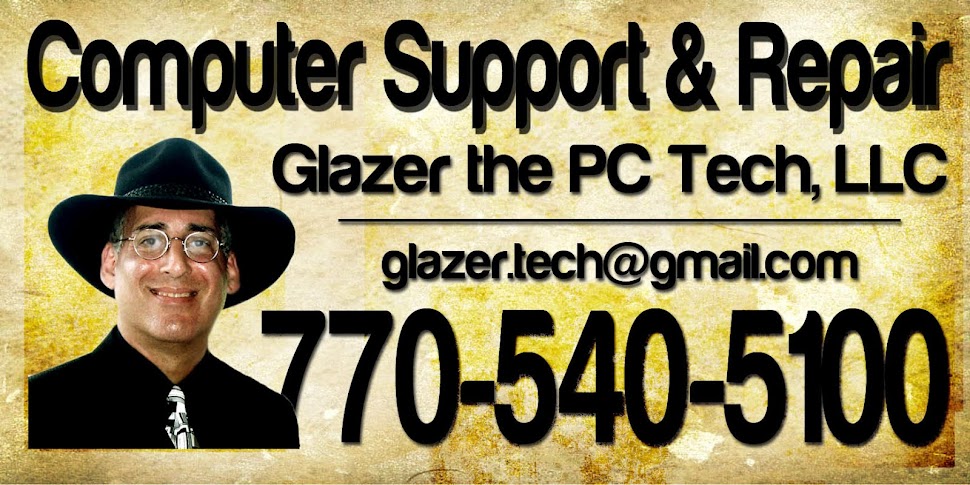
arthur@glazerthepctech.com
Few computer users run utilities on a regular basis. Most will wait until something goes wrong, and by then, it's usually too late.
My advice is, even if you don't keep your system defragmented, your registry optimized or viruses and malware at bay, there is still one thing you should do: Back up your system.
Whether it's your entire hard drive, a partition, system files or just some documents, when your computer crashes - and it will - with a backup, you will have something to resort to.
There are countless programs that will help you. Some will clone your drive; others let you choose what to back up. There are external hard drives with programs built into them. I know Maxtor and Western Digital both have one-touch operation for backups on external drives.
Alternatively, you could store your data on DVDs with programs like Norton Ghost or Acronis True Image. They make images of your drive. You boot with them in a disaster and your system is returned to the time that image was created.
There are also online storage services that allow you to back up your system to their space. Try some and decide which is best for you. Most programs now allow a test drive, a try before you buy.
Check out Web sites like download.com or majorgeeks.com for trial ware and take some out for a spin. Should you decide to buy, most are in the $50-$60 range, but you'll get at least a couple of weeks to check them out first.
If you have Vista, there is a built-in utility that will walk you through a backup. Go to the Backup and Restore Center in Control Panel under the System and Maintenance header. XP has no such option, but Windows 7, from what I've read, will.
I have had to tell clients that all of their data was lost — system files along with their documents and photos — because they had no recovery plan. Some computers ship with a rescue partition. It is a part of your hard drive that you can access in an emergency. Others ship with a CD or two with the important files on it. You boot with it in your drive to restore your system, should it be necessary.
If you don't have either system, you lost your discs or erased the partition, get another way to restore your computer because one day you will have to.
Sometimes it's just better to reformat your drive and reinstall everything, than to try to fix a dozen errors. There's nothing like having a fresh copy of Windows installed. By the time you're finished, you'll have a cleaner and faster computer than you've had in months or more.
Files get corrupt and hard drives fail. It's a part of computing. If you have a plan in place and have your system files, photos and documents backed up to a secondary drive, you'll be fine.
If you've added hardware or don't have a program that copies device drivers, you'll need a program that will do just that. Driver archivers and updaters are invaluable in system restoration. Without a driver for a new video or sound card, for example, that card won't work. It's just something else you'll need to back up. Look for Driver Max or Driver Genius while you're on those download sites.
If you don't use an image to restore Windows, you will also need to reinstall any programs that were added after Windows was installed, like Office or Photoshop. So if you have your Microsoft CD in a box somewhere, make sure you keep your program CDs in there as well. Then there are the keys and passwords.
I have a little black book with vital computing information in it. I keep things like CD keys, those long numbers you need to activate a program, as well as e-mail log-on information and any passwords I might need. It beats having sticky notes all over your monitor.
If you choose not to back up your system (it's your headache), at least determine if you have a rescue partition and how to use it. Or if you have a set of recovery discs, know where they are and how to use them. You'll be in panic mode. Short of that, have the number of your tech handy.
Files will get corrupt. Hard drives have fast moving parts and will only last 4 to 5 years. And photos, the digital kind anyway, are not forever — not if you don't back them up.
Arthur Glazer is a freelance writer and computer technician in Gainesville. His column appears biweekly. Arthur welcomes your computer questions and ideas for future columns.

No comments:
Post a Comment
Got a Comment - or a quick question...